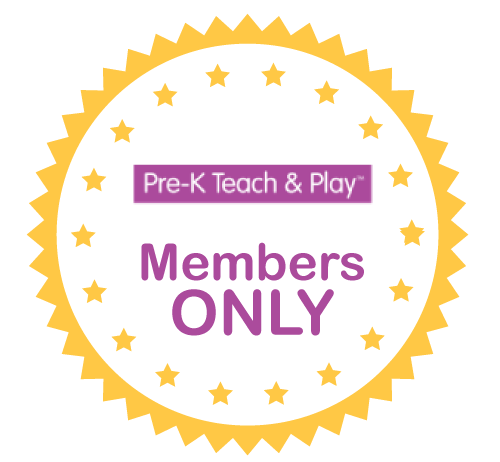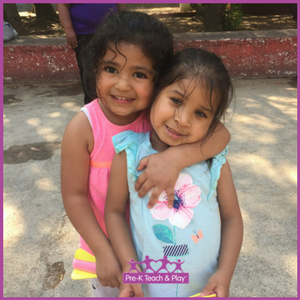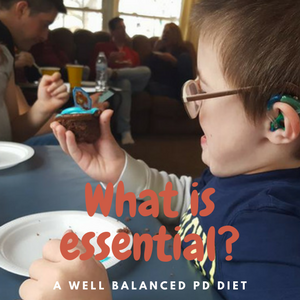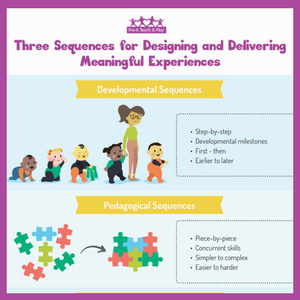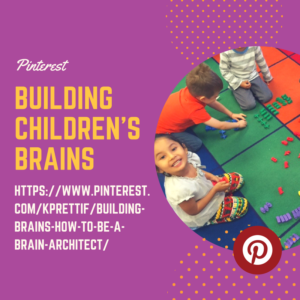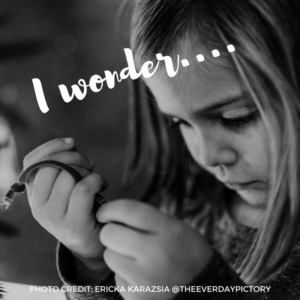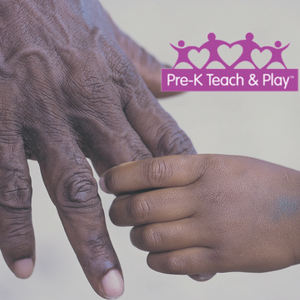ECE Solutionary Membership Resources for Month 13
This month, I've hand-picked solutions from the categories of the self-regulation, authentic assessment, IEPs, professional development, brain research, power of play, and inclusion. Each solution is provided to help you go deeper into the "how" behind helping children thrive in school and in life.
Click here to download this month's at-a-glance handout
As always, each solution includes a brief description and hyperlink to a PDF, YouTube video, blog post, podcast, and/or website. For those who end up feeling like the solution was TL;DR (too long; didn't read), I provide an at-a-glance tip you can put into action immediately. Each tip is signified by a purple hashtag (#prektip).
Self-Regulation Solutions
This video-blog (vlog) addresses the importance of relationships in finding success and regulating behavior. Consequences are sufficient in the moment, but before and after we need relationship. - created by Barbara Avila
#prektip: Without relationships, consequences can only fall flat. (click here to tweet this!)
This video-blog (vlog) explains the importance of targeting social reciprocity, especially in children with autism. Social reciprocity allows us to filter through all the stimuli around us and focus on what is important; without it, can you imagine how overwhelmed you’d be? - created by Barbara Avila
#prektip: Teaching social reciprocity gives control back to our children by helping them process everything the world throws at them. (click here to tweet this!)
IEP Solutions
We often say “I want the child to be engaged!” This recording walks us through what this really looks like in the classroom and how to create realistic expectations that gel with the child’s current abilities - created by me
#prektip: Children build their social foundation by interacting with familiar adults, the environment, and peers. It is crucial to be sensitive to which skill your child is building and meet them where they are. (click here to tweet this!)
ECED Bytes™ (fee-based resource)
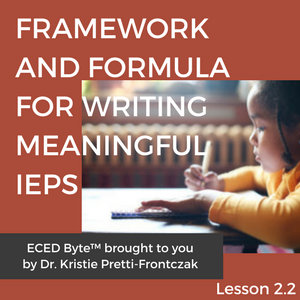
These training materials will help you and your team master making data-driven decisions and write legally defensible PLAAFP. The resources are available for purchase here: Data-Driven Decision Making & Writing Quality PLAAFP - written by me
#prektip: Evidence-based practice ensures every child’s access, participation, and progress. (click here to tweet this!)
Professional Development Solutions
This blog features two case examples of how #ECE {r}evolutionary leaders have put the solutions into practice. Early childhood team members from two schools use variations of the Pre-K Teach & Play “10 Essentials wheel” to engage in transformative professional development. - written by me
Want even more? Check out this PowerPoint featuring three “10 essentials wheels”
#prektip: Professional Development shouldn’t be boring! It should encourage sharing, reflecting, and creating. (click here to tweet this!)
This blog reflects on how we view adult learners. We know we should interact with children from a strengths-based mindset, but we often lose that focus with adult learners. So, how can we make that shift? - written by me
#prektip: Professional Development should maximize on assets and opportunities present in your team. (click here to tweet this!)
Even More Solutions
Three Sequences for Designing and Delivering Meaningful Experiences
In this podcast I dive into the “Sequence” portion of “Scope & Sequence.” Sequencing of instruction is important, but how can we begin to realize each individual child’s sequence of needs and development?
Want even more? Check out this infographic and these two audio files about developmental and pedagogical sequences.
#prektip: Discovering each child’s unique sequence can help us determine goals that mesh with their abilities. (click here to tweet this!)
From Best Practices to Breakthrough Impacts
This report delves into the current research taking place in neuroscience, molecular biology, and epigenetics regarding healthy development. It provides 5 important findings that have been strongly linked to positive outcomes over decades of research - written by Harvard University’s Center on the Developing Child
#prektip: We play a critical role in supporting children and parents to create strong, positive relationships that build the foundations of their brains. (click here to tweet this!)
Three Things Play Partners Do When They Don’t Feel Playful
This recording tackles the issue of caregivers that just don’t feel playful. Sometimes our temperament and our kids’ just don’t match, but that’s okay! Play partners can always be a guide on the side, reduce stressors, and spark curiosity. - created by me
#prektip: Play isn’t something we just do on the weekend - it’s everyday explorations! (click here to tweet this!)
How To Hold Thirty Hands When You Only Have Two
This blog offers a creative solution to the prevalent issue most teachers and providers face: how do we give more when our resources keep becoming less? Self-correcting materials allow for children to find success independently and enable us to focus on building relationships. - written by me
#prektip: Large classes and few hands requires us to be creative. But, that’s okay. That’s our superpower! (click here to tweet this!)
